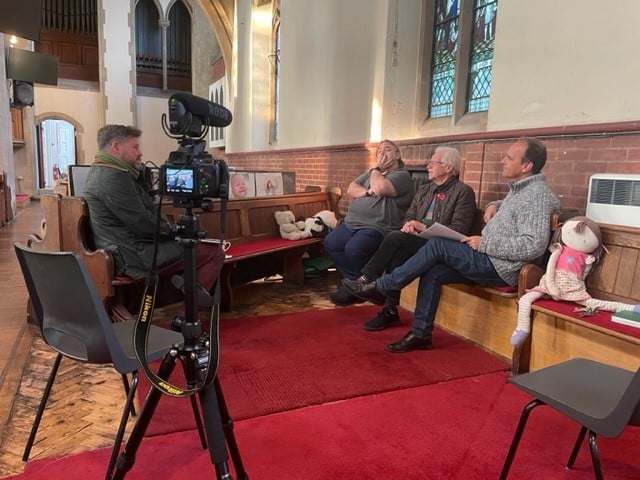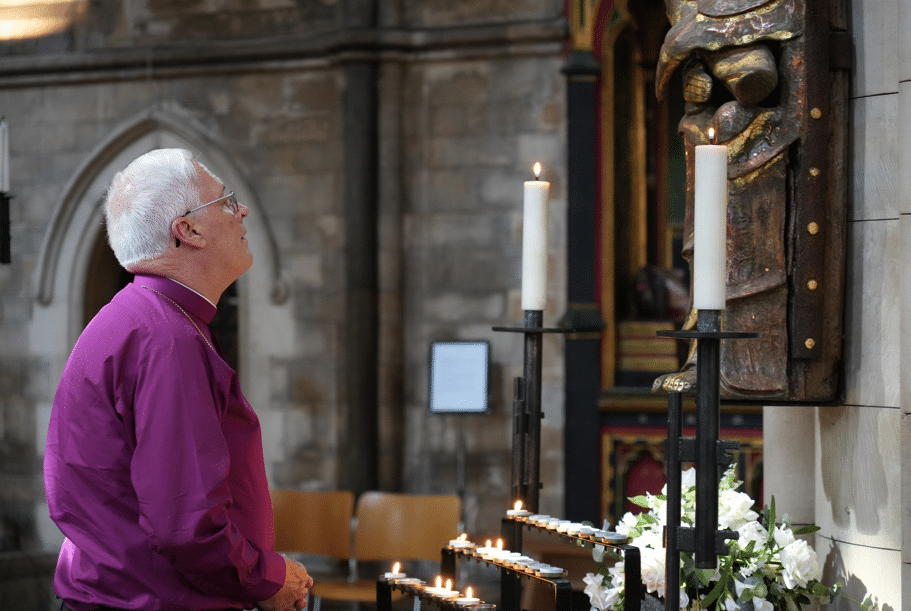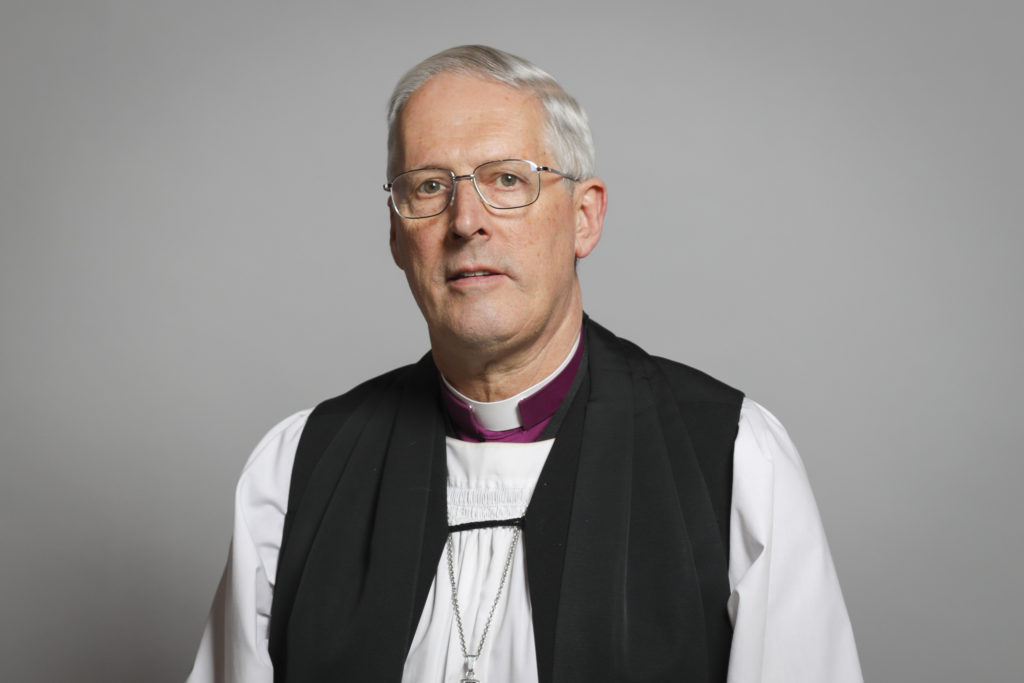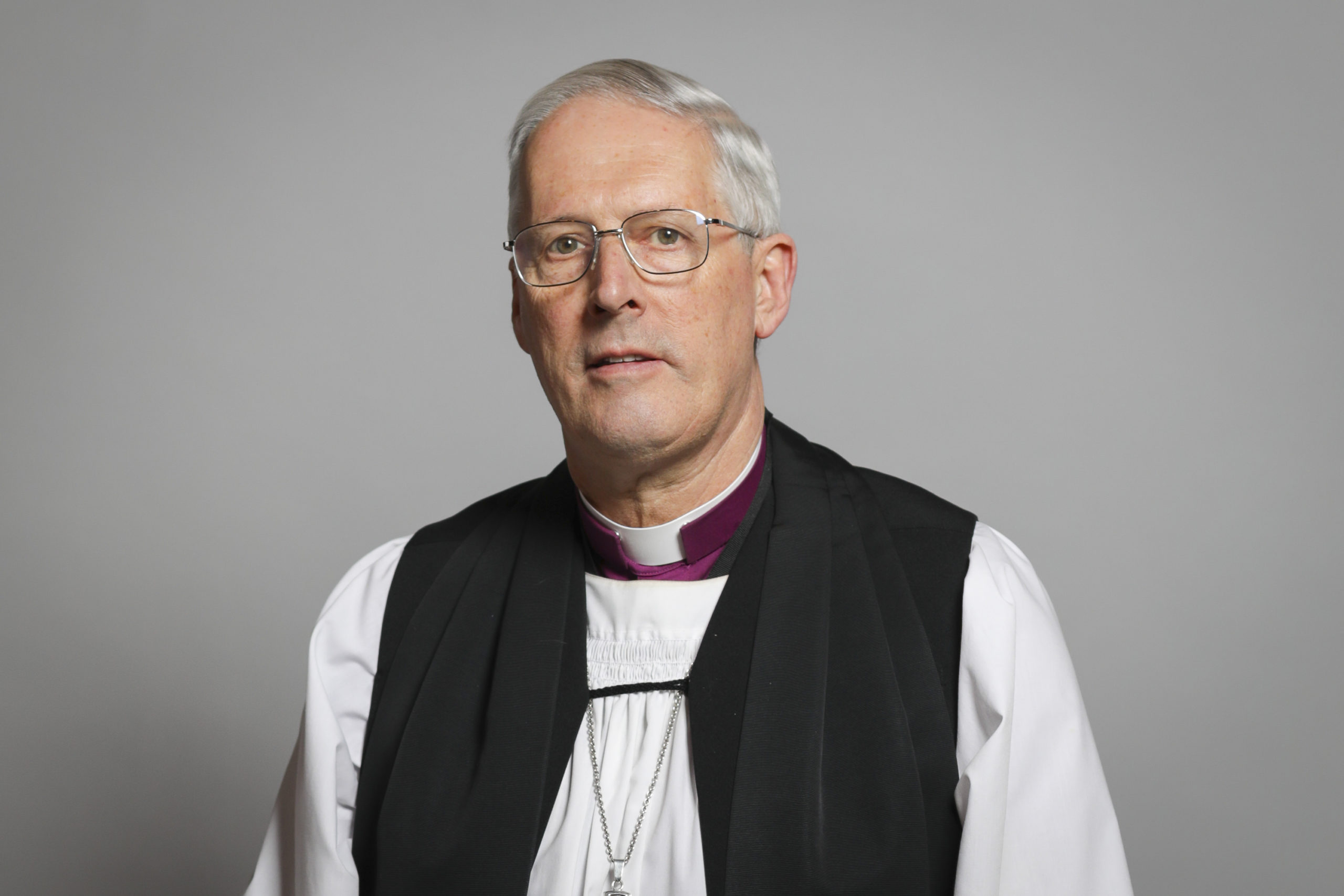Bringing your church building into the public eye (whether locally or nationally) can inspire interest, encourage visitors, and increase recognition that your community building is open and available to be used for activities other than Sunday services. And the income from hosting commercial filming is a potential financial incentive to consider.
At the same time, it is important to be mindful of the possible negative impacts of allowing your building to be used for photography or filming, and take the necessary steps to ensure that the experience is a positive one for everyone.
You must contact your Archdeacon early in the process – permission for the filming to take place will probably be needed, either from them or the Chancellor of the Diocese. They will also be able to offer helpful advice if you have been approached by someone who wants to use the church as a location.

Promoting Your Church as a Location
There are several on-line location libraries. Some will charge you for listing but others are free. Film London is part funded by the Mayor of London and the British Film Institute and offers free listings.
You might also wish to consider local partnerships informally; perhaps reach out to any National Trust properties or other significant heritage buildings nearby? That property owner/manager may be willing refer enquiries on where filming companies are looking for places of worship.
Points to consider when responding to requests:
Appropriateness:
Request a synopsis of the intended programme. This will allow you to determine if it is in keeping with a place of Christian worship. If you feel that the finished product will not enhance the reputation of the church in its community or is not in line with Christian teachings then do not proceed. If filming is likely to be lengthy with lots of scenes set in the church you may want to see the actual scripts.
Time-commitment:
Broadly speaking, a news item where the subject is a Church of England matter and the editor just wants to use the church as background should not take more than half an hour. However, a feature film or drama will need to prepare the church in advance and then spend time removing their equipment. The word ‘day’ is often used; be clear about what constitutes a day so you can charge if the company overruns its time.
Facilities:
Does the production company need to use other facilities such as the hall or car park? Will they require toilets, kitchen, dressing room areas etc? The use of other facilities and parking should be factored in when you negotiate the fee. Make sure the production company have organised parking. If it is on a street with restrictions they will need approval from the local authority traffic department.
If you are the only community building in an area, a production company may approach you to use only your facilities while they film elsewhere in a nearby location.
Supervision:
It is strongly advised to ensure somebody is present during the filming. For longer shoots two people may be needed. They will need to know the arrangements you have made with those filming and able to challenge anything they see as unsafe, inappropriate or beyond the scope of the agreement.
Layout:
Are any changes proposed to the way the church is laid out? If fixed items need to be moved, you are likely to need the Archdeacon’s or Chancellor’s permission. If in doubt, please contact the DAC.
If a baptism or marriage is being filmed for a documentary, they must get permission from all those involved. To film weddings, a film crew will often offer the couple copies of the film in lieu of a payment, but the PCC is also still entitled to a fee.
For any service you need to agree what is to be filmed and where the cameras are to be placed to avoid distractions for the congregation.
Preventing Damage:
Make sure that the production company take measures to protect any delicate surfaces such as wooden floors or narrow doorways. Carry out a walk-round inspection of the condition with the filming manager before starting. Take lots of digital photos. Inspect for damage again immediately afterwards and report any issues promptly.
Insurance:
You must ensure the PCC is insured against damage or accident. Your own insurance policy may not cover you. Contact the the Diocesan Registrar if you need further advice. Carry out your own risk assessment and ensure all fire regulations are adequate and up-to-date.
Contract:
Always have a contract. It does not need to be long, but it is advisable to ask the Diocesan Registrar to review it, especially if there are copyright matters. The contracting party for the church should be the PCC.












